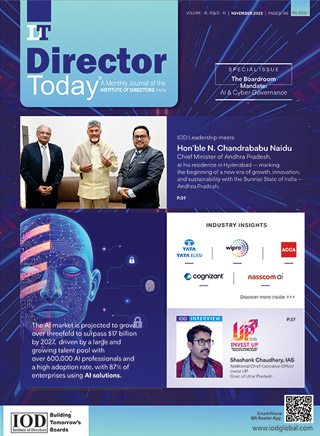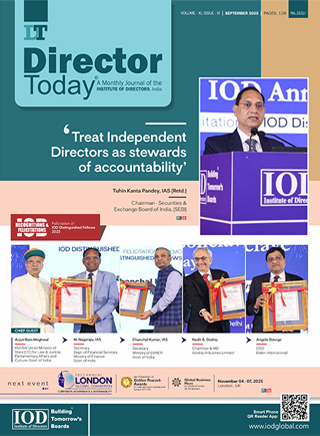Boards’ Strategic Preparedness for Navigating Transformative Technologies

Steering a company through the complexities of emerging technologies is no simple feat. It demands active involvement from the management down to the operational tiers. The board of a company plays a pivotal role in shaping its long-term direction, particularly as innovations like Artificial Intelligence (AI), block-chain, drones, and IoT devices continue to redefine industry sectors.
Boards often find it challenging to manage the cultural, risk, and strategic dimensions of technology adoption, regardless of a company's size or maturity. Clearly delineating the roles and responsibilities of all board members and committees is crucial for establishing a robust governance framework. The ultimate goal is to develop a comprehensive strategic plan that encompasses every aspect of the organisation, from customer engagement and IT to legal matters and C-suite strategy.
Duties of individual directors and sub-committees
Every individual at the governance table should have a basic understanding of digital challenges. For instance, recognising the security risks associated with digital tools and technologies is vital for safeguarding the company's reputation and long-term profitability. Sub-committees serve as specialised units within the board, each focusing on specific business areas. These sub-committees should be fully aware of current market challenges and opportunities, and they should contribute to board discussions accordingly. Their role is also authoritative in nature; they challenge management with incisive questions and facilitate decision-making with data-driven insights.
Obligations of the governing body
The board's primary obligation is to hold the executive leadership accountable for achieving organisational objectives. Towards this end, the board may consider setting up specialised sub-committees like a Digital Oversight Committee, which would focus specifically on emerging technological issues. The role of these sub-committees should increasingly centre on governance challenges associated with disruptive technologies.
Accountability of senior leadership
Transparency is non-negotiable. Senior leaders must provide an accurate portrayal of the organization’s current state. Addressing uncomfortable challenges is critical for responsible governance and enduring market viability. Conversely, boards should watch for warning signs from the executive team. Over-reliance on technology without a cohesive vision can cause problems. Similarly, a reluctance to adapt based on fresh insights can inhibit growth, as can a delayed response to emerging trends.
Skill sets for future success
In the years ahead, skills such as continuous learning, design thinking, innovation, and experience-centric, human-focused sales strategies will become increasingly valuable. The board should also recognise emotional well-being as a key component in maintaining effective leadership. Boards must acknowledge that any hesitancy can allow competitors to pull ahead. Swift adaptability is crucial, elevating the board's role from mere oversight to visionary guidance.
Author

Ms. Jayashree Vaidhyanathan
Chief Executive Officer, BCT Digital
Independent Director, Global Board, PwC
Independent Director, India Board, PwC
Independent Director, UTI Asset Management Company
Independent Director, Indigrid
Independent Director, Godrej Properties Ltd.
Owned by: Institute of Directors, India
Disclaimer: The opinions expressed in the articles/ stories are the personal opinions of the author. IOD/ Editor is not responsible for the accuracy, completeness, suitability, or validity of any information in those articles. The information, facts or opinions expressed in the articles/ speeches do not reflect the views of IOD/ Editor and IOD/ Editor does not assume any responsibility or liability for the same.

 Quick Links
Quick Links
 Connect us
Connect us




 Back to Home
Back to Home































